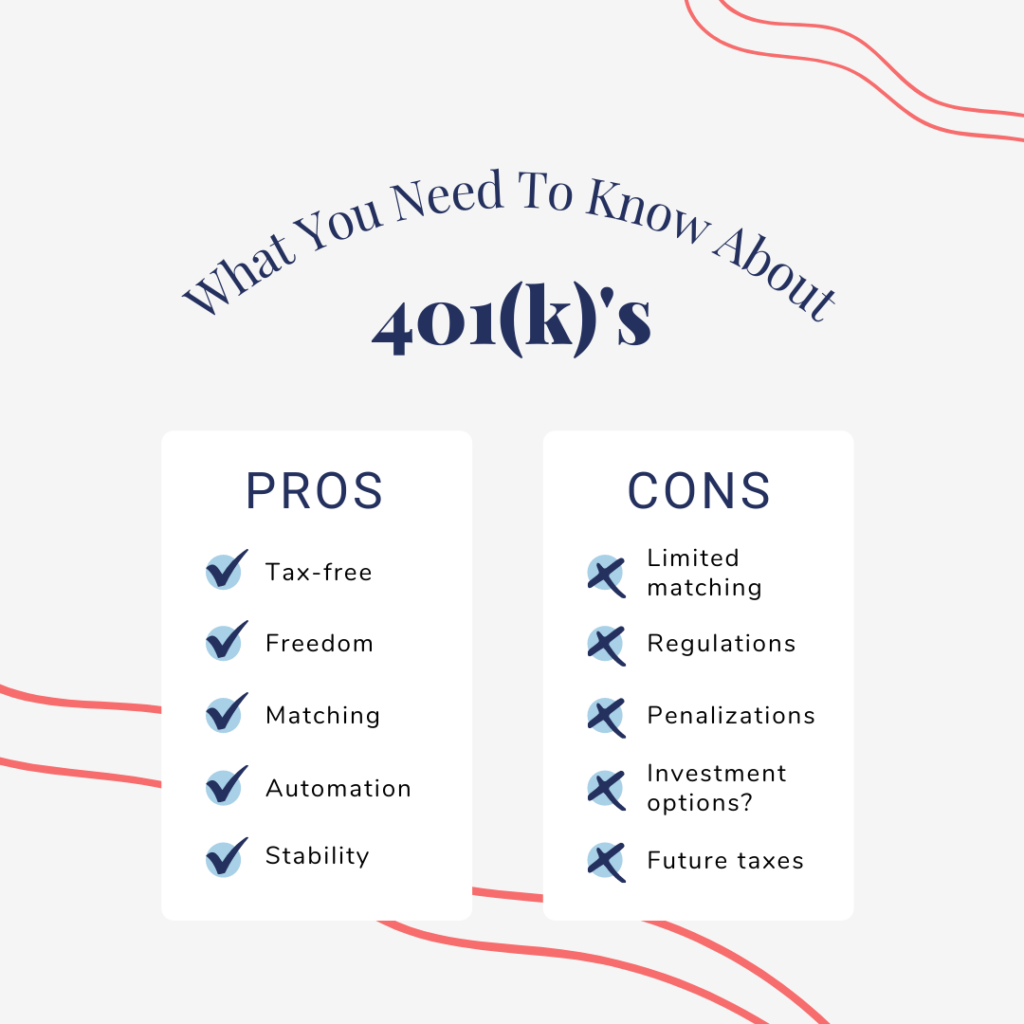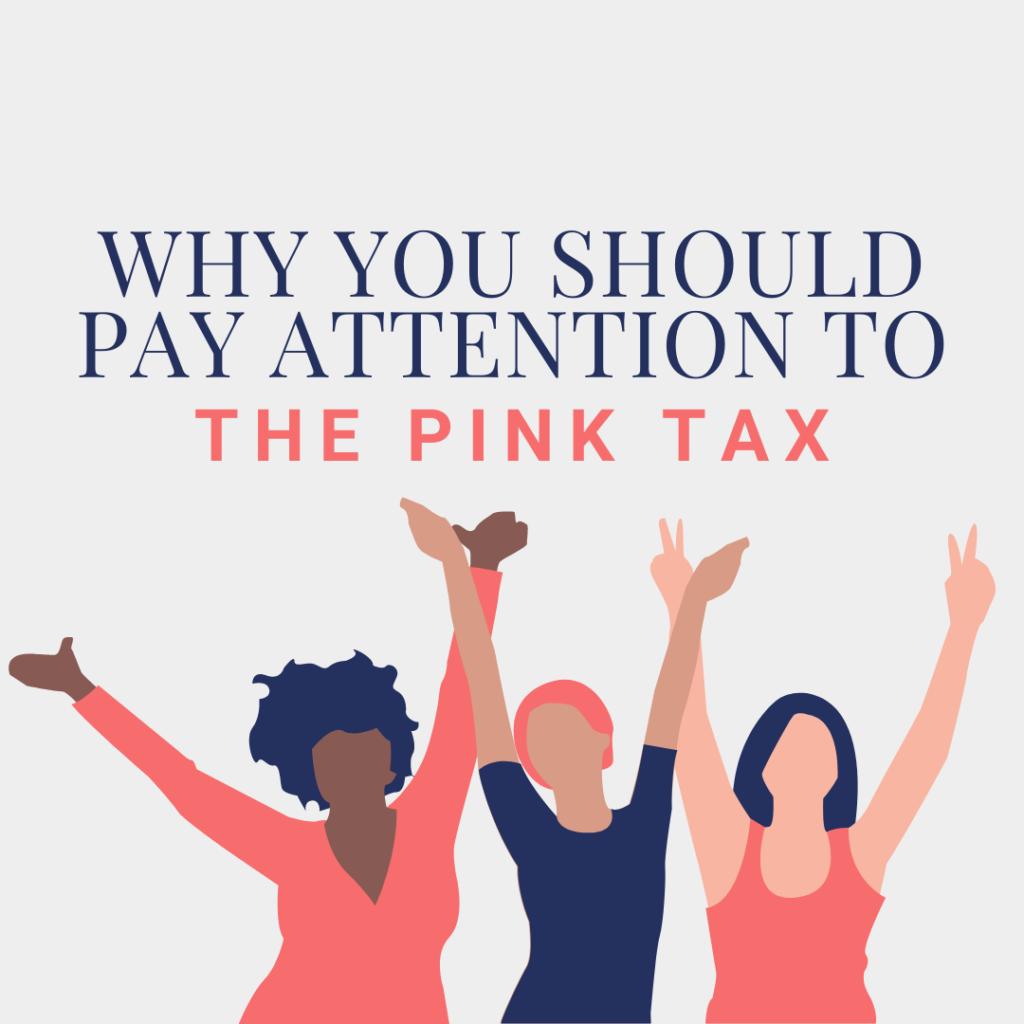
It’s time to talk about 401(k)’s and their impact on you.
What is a 401(k)?
A 401(k) is simply a retirement plan that is offered by employers. This is money that is saved specifically for retirement and invested by the employer. Additionally, this money is completely untaxed and the money you put into it is often matched by the company you are working for. Sounds great, right?
While a 401(k) account is beneficial in the long run, that money is virtually untouchable until you reach retirement age. If you try to deduct money from your 401(k) account before that time, you will be heavily fined. While you will see that money grows over time due to investments, many of these investments may not align with your values as an individual. Do not let this scare you off.
Undoubtedly, 401(k) plans have both strengths and weaknesses. In this article, I will give you a comprehensive guide outlining the two, so you can spend your money wisely.
Pros of a 401(k)
1. No tax!
401(k) plans allow you to put money into your account prior to it being taxed. This means that any money you put away is directly coming from your income and the government will not tax that money. Untaxable income, sweet!
2. The power is in your hands
You can contribute as much or as little as you would like, as long as you are abiding by the limits of your plan. Additionally, you can change how much or as little as you would like to contribute. Again, as long as you are abiding by the limits of your plan.
3. Free money!
Well, kind of. Many employers will match a specific amount of your contribution. For example, if you decide to contribute $5,000 a month and your employer matches 25% of your contribution, that is $6,250 you have added to your 401(k) that month. Nice!
4. Automated deductions
When you set up a 401(k) plan with your employer, money is automatically deducted from your income. This allows you to save for retirement without really having to think about it. Additionally, you know exactly how much you will see deducted from each paycheck.
5. Your best interest is the top priority
Since the money in your 401(k) is invested by your employer, they are required to follow several rules to keep your best interest first. These investments have to be stable, as 401(k) plans fall under the Employee Retirement Income Security Act.
Cons of a 401(k)
1. Only so much is matched
Although most employers will match a certain amount of your contribution, a strict limit is likely set in place. For example, if you decide to contribute $5,000 per month to your 401(k), your employer might only contribute $1,000. So yes, there is a catch.
2. Limited annual contribution
More likely than not, you are only able to contribute a certain amount to your 401(k) plan per year. This is because these plans are highly regulated. Even if you can contribute more than you already are, you may not be able to do so.
3. You cannot touch the account
Over time you will see that money in your 401(k) accumulate, but unfortunately, you are not able to take anything from that account. You will be highly penalized for doing so. Therefore, it is best to just watch your account grow.
4. Investment options are limited
In your 401(k) plan, your employer will give you a range of investment options to choose from. However, these options are incredibly limited. This means that if you want to invest in another stock, fund, or other option to contribute to your 401(k), you are out of luck. Additionally, the investment options you are given may not align with your values.
5. Issues with taxes
Although you will not pay high taxes unless you deduct from your 401(k) before retirement, you will still have to pay taxes in the long run. When you start to take money from your 401(k) when you retire, that money will count as income, and you will be stuck paying income tax once you deduct from that account.
What Should You Do?
Bottom line, if your employer offers you a 401(k) plan, you should take advantage of it. The big appeal with 401(k) plans is that the money you contribute is ultimately “tax-free” as long as you comply with the regulations of your plan. This, among the other advantages of these plans, outweighs the weaknesses for many people.
However, many people are deterred by these disadvantages. For example, investing in stocks, funds, etc. that do not align with your values may seem incredibly disheartening. If this is the case, there are other options, such as contributing to an IRA account for retirement, which can be done in conjunction with a 401(k) plan.
This is where Invested Interests comes into play. If you are someone who wants to save for retirement but in a way that aligns with your values, Invested Interests can help! If you are interested in socially responsible investing and want to learn more, we would love to hear from you! To get started, you can reach out to us here.
Happy investing!



